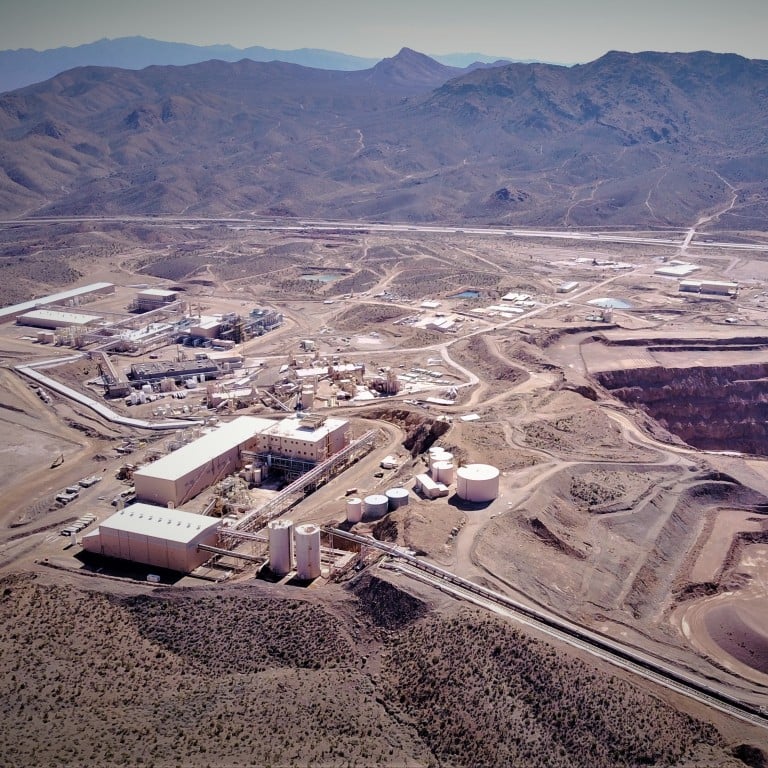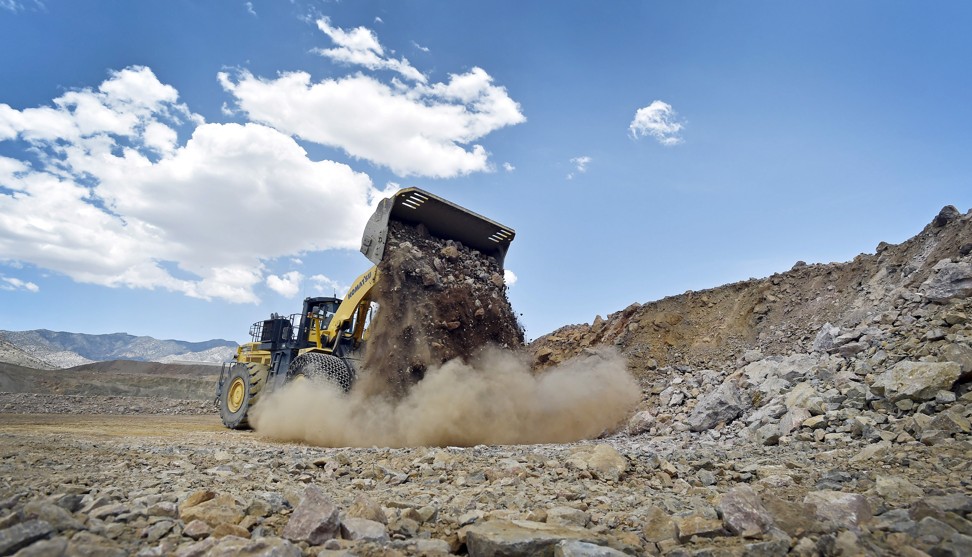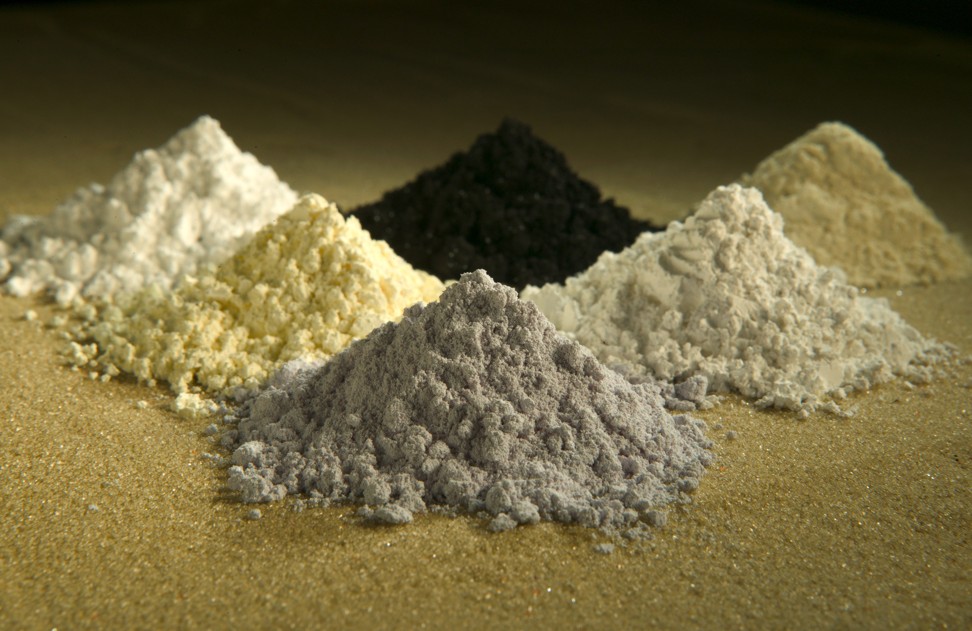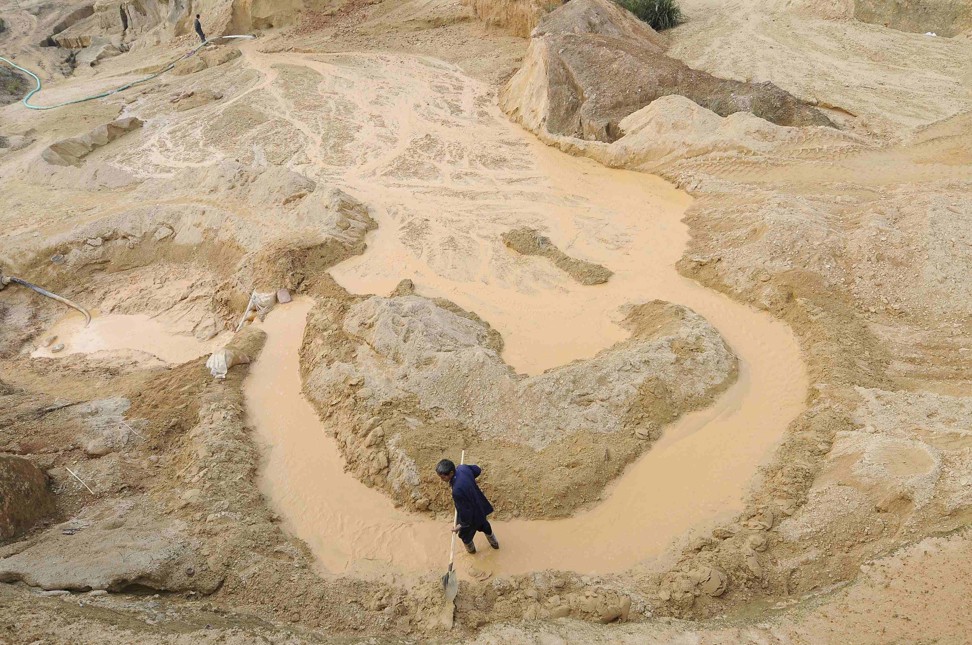
Caught between Trump and its biggest market, America’s sole rare earths mine is an unusual victim in the US-China trade war
- MP Materials, which runs the Mountain Pass rare earths mine, said it will kick-start its own processing operation by the end of 2020
- China last week more than doubled the import tariffs on ores and concentrates to 25 per cent, effective June 1
MP Materials, which runs the sole operating rare earths mine in the United States, is an unusual victim in the year-long tit-for-tat trade war between the two largest economies on the planet, as the conflict looks set to open up a new battlefront over technology.
The operator of the Mountain Pass mine in California said it will kick-start its own processing operation by the end of 2020, after China last week more than doubled an import duty on concentrates to 25 per cent effective June 1. MP exports pellets – ground-up ores that contain oxides of rare earth elements – to China for processing into neodymium, cerium and other elements used in magnets, electric vehicles, smartphones and a myriad of industrial applications and electronic products.
“A 25 per cent tariff is likely to make domestic sources of rare earth ores in China more competitive, although importing ore still circumvents the mining quota and associated environmental legislation,” said David Merriman, a London-based analyst at Roskill Information Services.

US President Donald Trump, who ordered his administration to more than double US duties on US$200 billion worth of Chinese products to 25 per cent, had wanted to slap a 10 per cent tariff on Chinese rare earths in July, but dropped it from a long list last September.
“This trade war, and the fact that the US has not retaliated against the unilateral tariff on our products highlights [America’s] reliance on Chinese rare earth products supply,” Las Vegas-based MP Material’s chief executive, Michael Rosenthal, told the South China Morning Post. “It focuses American manufacturers’ and government officials’ attention back on what we are trying to do and can do.”

China’s rare earths miners and refiners, based primarily in Inner Mongolia and Jiangxi province, had been catching up with Mountain Pass since the mid-1980s, taking advantage of the country’s lax environmental laws and lower labour cost.
“Our high ore grade and quality gives us significant competitive advantage in the ease and cost of processing, but we face different cost pressures from environmental compliance, labour, waste water processing and transport,” Rosenthal said.
Still, modifying and completing the downstream processing facilities at Mountain Pass had always been a key part of MP’s business plan since it bought the mine in 2017 from Molycorp. The strategy was given added impetus last year when China imposed a 10 per cent tariff on imported ores, leaving MP in a hard place between Trump and its largest market.
MP, which sells its output primarily to Chinese processors, was able to offset the initial China tariff by reducing its fixed cost per unit of output through raising production, Rosenthal said.
Some of Molycorp’s strategic “mistakes,” such as the investments in expensive processes and facilities to extract the low-value cerium, can also be corrected with adjustments to the production lines at Mountain Pass, Rosenthal said.
“Molycorp went on the wrong path. Neodymium magnet materials should have been the focus. Cerium prices five to seven years ago were four times today’s prices. I don’t think Molycorp anticipated prices would fall so fast and for so long,” said Ryan Castilloux, managing director of rare earth and electric battery metals consultancy Adamas Intelligence.

The vast majority of the project’s downstream processing facilities for separating materials and extracting out the useful minerals has been built by Molycorp at a cost of around US$1.5 billion.
Rosenthal declined to divulge the spending required but said no fresh financing needs to be raised to complete the work.
“It is worrying times for Shenghe and the other US consortium members as there is little capacity to process materials outside China,” said Merriman.

A Shenghe spokeswoman said it expects its investment return on the Mountain Pass project to be hurt by the tariff, but declined to comment on the impact on its distribution business.
Castilloux said price rises in recent days caused by trade war-related speculation has so far helped offset around half the tariff increase.
He estimated it will take less than 20 per cent of what Molycorp already spent to bring the downstream operations online.
“Magnets, used in high growth industries like electric cars, wind turbines and industrial robotics, are the most important material in the entire rare earth industry, driving 90 per cent of the total value of rare earth demand,” he said.

